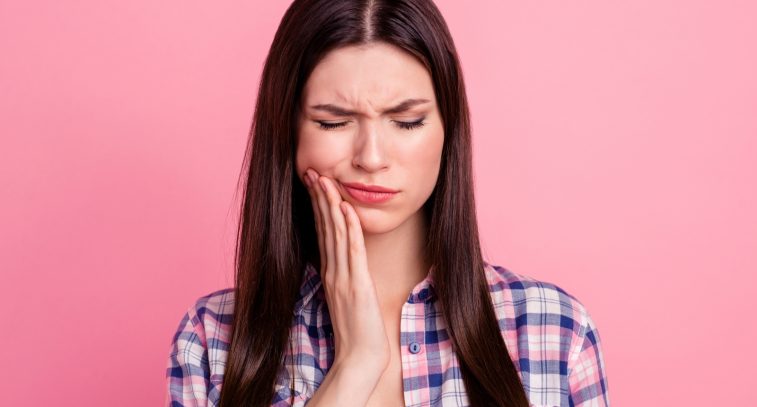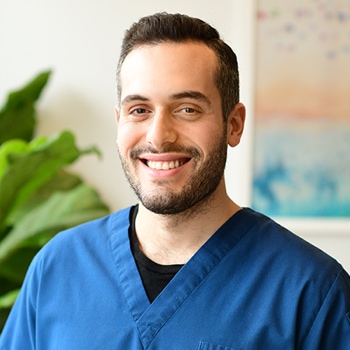After Wisdom Tooth Removal
Wisdom tooth removal is an oral surgery performed if a wisdom tooth is causing discomfort or impacting the function or health of your gums, teeth, or jaw. After wisdom tooth removal, your dentist or oral surgeon will send you home with aftercare instructions.
But, if you need a reminder (or a preview for those with upcoming removals), having a guide for reference can help. Following the dos and avoiding the don’ts can prevent a dental emergency. It can also speed up recovery and make it easier to get back to normal.
What You Can And Can’t Do
Here are some simple rules about what you can and can’t do after getting your wisdom teeth out. Whether you’ve had one or a few wisdom teeth removed, the same rules apply.
Things You CAN Do:
- Rest (24–48 hours post-surgery)
- Stay hydrated (water, no surgery drinks)
- Change the gauze as instructed
- Use cold compresses or ice (first 24 hours)
- Take your medication exactly as prescribed
Things You CAN’T Do:
- Don’t use straws
- Don’t use mouthwash
- Don’t drink alcohol or smoke
- Don’t chew on the gauze
- Don’t eat crunchy or hard to chew food
- Avoid hot liquids (tea, coffee, soup, etc.)
Avoid using straws for the initial 48 hours post-wisdom teeth removal to prevent disrupting the blood clot formation at the extraction site. The suction from straws can cause complications. Instead, utilize a spoon for consuming liquid foods like smoothies or milkshakes. Additionally, refrain from smoking throughout your recovery to ensure optimal healing.
How Long Do You Need Gauze After Wisdom Tooth Removal?
Gauze guards or cushions a wound. It also absorbs any bleeding. The purpose of gauze is to keep your wound clean and encourage faster healing. How long you need gauze after dental surgery will depend on how quickly your surgery site closes.
After your surgery, you’ll be given instructions about when to change your gauze and approximately how long you will need to use it.
Gauze should be removed while drinking or eating. The gauze is there to absorb bleeding, not your food!
A blood clot protects the wound, and active bleeding stops as the extraction spot heals. Therefore, after the surgery site has formed enough coverage, you should notice less blood on the gauze. When bleeding has consistently stopped, you can stop using gauze.
Some bleeding within the first 1–2 hours is normal. You may also experience occasional spotting or oozing during recovery, usually within the first 24 hours.
However, if you experience active or persistent bleeding the day after surgery, contact us or your oral surgeon for an emergency dental appointment.

Pontential Complications After Wisdom Tooth Removal
While not very common, certain issues may arise after wisdom teeth extraction if the blood clots do not properly develop or become dislodged at the site of removal. From most to least frequent, potential complications include:
- Dry Socket
- Oral Infection
- Nerve Damage
- Allergic Reaction
Dry socket occurs when a blood clot fails to form or is lost from the extraction site, leading to exposed bone and severe throbbing pain in the gum or jaw, often with an unpleasant taste and smell inside the mouth.
When Is It Safe to Eat Pizza And Other Favourite Foods?
Your healing process is individual. Some patients can return to regular eating routines within a week. But, for the first few days, you should stick to softer foods, such as oatmeal or eggs. Make sure to follow your dentist’s recommendations if they have additional food guidelines.
However, suppose pizza, macaroni, or toast are your favourite foods. In that case, you can easily enjoy those softer foods after the initial recovery period. Likewise, foods requiring minimal chewing are easier.
If crunchy chips or steak are your favourites, it may take longer before your mouth is ready to tackle sharp-edged or chewier foods. So wait for at least a few days or consult your oral surgeon before trying tougher favourites.
Is It Safe to Use Mouthwash After Wisdom Teeth Removal?
Do not use mouthwash after dental surgery.
Although mouthwash is useful for everyday mouth care, it can impact healing after wisdom tooth removal. Using mouthwash can potentially dislodge a blood clot, which is necessary to cover and protect the hole created after tooth removal.
If mouthwash or food debris get in the way of clot formation, it can lead to complications like dry socket.
Even after resuming your normal eating routine, avoid using mouthwash within 24–48 hours after dental surgery.
Is It Okay to Sneeze After Wisdom Teeth Removal?
Sneezing is an involuntary response to clearing your nose. When you sneeze, some automatic responses include closing your eyes, tongue moving to the roof of the mouth, and muscles tensing. The impact of a sneeze places pressure on your sinuses, which are directly above the back teeth of your upper jaw.
You should avoid sneezing after wisdom teeth removal.
It can be challenging to stop a sneeze, so prevention is best. Knowing your sneezing triggers, like irritants, allergens, or sunlight, can help you prevent a sneeze.
If you can’t stop a sneeze, don’t panic. Instead, evaluate how you feel after the sneeze. Did you notice increased bleeding or pain? Did you feel a tear or unusual discomfort?
Contact us immediately if you feel something has changed, dislodged, or pain has increased after a sneeze.
Support After Oral Surgery
Surgery, even minor oral surgery, can sometimes feel overwhelming. You know the guidelines, but sometimes it helps to talk it over.
If you have questions about aftercare, before or after your wisdom tooth removal, call to book in with an Etibocoke dentist on our team at Marks Dentistry. From daily oral care to oral surgery, we’re here to provide individualized support.
Book an appointment today for your oral health care.




